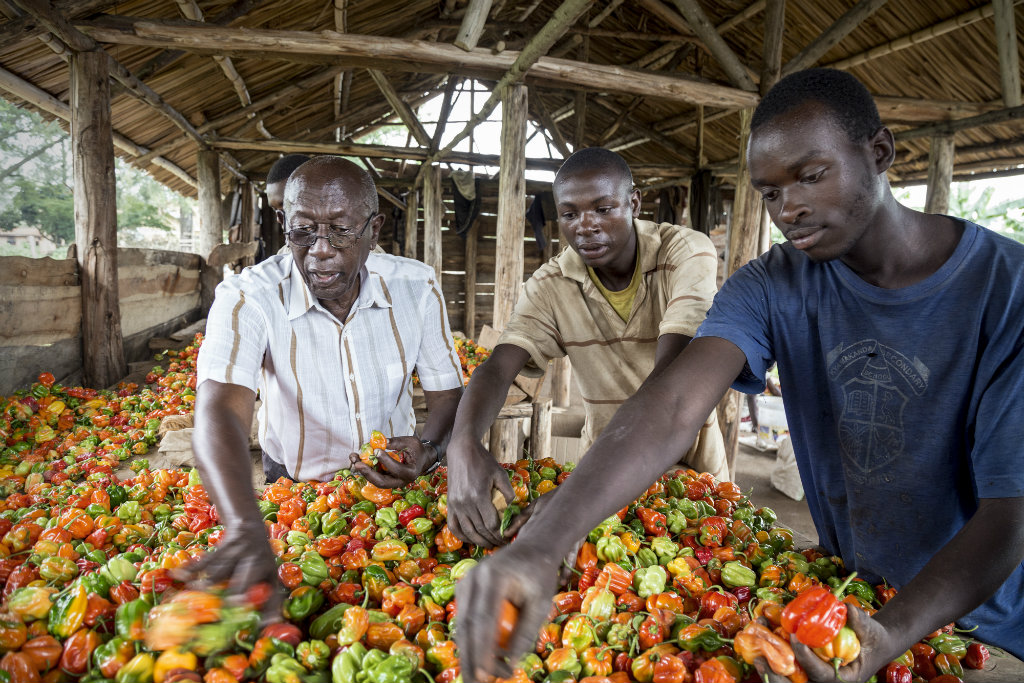The Consumer Unity and Trust Society (CUTS) has been appointed to sit on the Food Safety Coordinating Committee in Zambia. This development comes at a time when the Parliamentary Committee on Health, Community Development and Social Services is currently engaging in dialogue on the Food Safety Bill 2019 in Zambia. The objective of the Food Safety Bill is to provide for the protection of the public against health hazards and fraud in the manufacture, sale and use of food; provide for a streamlined process for regulatory clearances for regulatory health requirements for food premises; establish the Food Safety Coordinating Committee and provide for its functions and powers.
CUTS International was established in 2000 to function as a centre for action (policy) research, advocacy and networking on issues of trade and development, competition policy, investment regulation and consumer protection. As part of the SDALL programme partners, CUTS is promoting the development of sustainable informal markets systems. The organization is seeking to influence informal markets in Lusaka to leverage their ability to contribute to the provision of sustainable diets in Zambia.
CUTS welcomed the proposed Food Safety Bill, 2019 as food safety has become an issue of grave concern in Zambia and the government has a role to play in ensuring that consumers have access to safe food. Further to this, CUTS was honoured to note that the bill proposed the establishment of a Food Safety Coordinating Committee in which it proposed that CUTS sit on the Committee to represent the voices of consumers.
In an effort to reflect consumer views, CUTS noted that while the bill was indeed a positive development, a major shortcoming of the bill was that it did not clearly outline how it would engage informal markets which are responsible for the majority of food purchases in the Zambia.
Informal markets, broadly defined, comprise of enterprises which do not comply with the full extent of government laws and regulations. This sector is typically characterized by its ease of entry, low levels of skills, labor intensive technology, and small firm size. As such, it has grown to assume a prominent role in most African economies, including Zambia. In ensuring that the informal sector is not side-lined within the food safety discussion there were a number of issues CUTS indicated needed to be addressed.
Firstly, CUTS noted that the bill spoke to regulation and enforcement however not enough of the bill spoke to the roles and responsibly of the state to provide public services that ensure food safety could be realised and adequately maintained, especially in informal markets. We noted that infrastructure such as roads, water and sanitation services, electricity were services developed and supplied for shopping malls however there was disproportionate investment being directed towards informal markets. PPP’s have become recognized as ways to provide infrastructure to support development however it is important to ensure that if the same approach is used in the informal sector, the infrastructure remains affordable and accessible to low-income marketeers.
We also highlighted that it was unfortunate that most discussions on informal markets in Zambia focused on the role of informal markets in transmitting diseases. Indeed, in the past Zambia has seen a series of outbreaks of diseases related to food safety stemming predominantly in the informal sector. While the extent of foodborne risks in Zambia is not fully known recurrent cholera and typhoid outbreaks suggest that foodborne pathogens, poor hygiene and sanitation, and other food safety risks are having a negative impact on consumers.
While this is indeed true, insufficient attention is paid to the role that informal markets play in supporting livelihoods and nutrition and as such, how to make their working environments better to minimize the spread of food borne diseases. The lack of discussion around the benefits of local markets has resulted in inadequate discussions about how we can harness the potential within the informal market given its importance in ensuring not only food access to low- and middle -income consumers who constitute the significant majority of the population, but also in supporting livelihoods and contributing to poverty reduction. Informal markets make food available in manageable quantities, at lower prices than formal markets, and are closer and more accessible to consumers. As such, CUTS highlighted that it was paramount that the bill clearly outlines ways of engagement with the informal sector to ensure that it meets the needs to the majority of the population.
Food safety is cardinal issue in Zambia. Aside from causing a high death rate among children and the elderly, food safety-related diseases place a significant burden on straining public health services, reduce the productivity of the working population and constrain development. It is therefore imperative that food safety issues that pertain to both formal and informal sectors be addressed to ensure that the bill is both progressive and inclusive and thereby effective once enacted. Consumers have a right to expect that the foods they purchase and consume are safe and of high quality.
By Chenai Mukumba and Njavwa Simukoko




